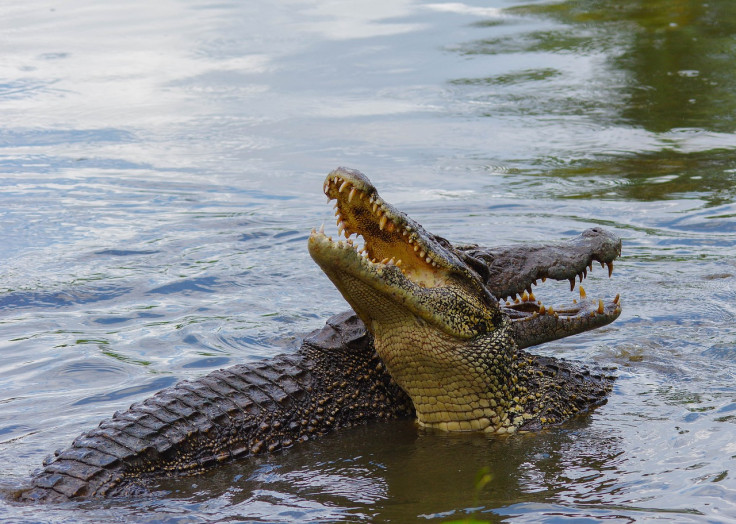Nine-Year-Old Boy In Critical Condition After Being Attacked By Crocodile
Crocodiles are a protected species in Australia, leading to their population exploding in recent years.

A 9-year-old boy has been fighting for his life at an Australian hospital after being attacked by a crocodile on Saturday. The boy had gone out for a swim when a crocodile attacked him out of the blue near Jabiru, a small town in the Kakadu National Park.
He had to be airlifted from the park to a hospital in the nearby city of Darwin for further treatment. The area where the incident took place is not accessible to the general public, according to a Parks Australia spokesperson.
"Following the attack, the patient was transported to the Jabiru Community Health Centre, [where] CareFlight's specialist doctor and flight nurse treated the patient at the Jabiru clinic," a spokesperson from CareFlight, which operates medical retrieval services in the region, told ABC. The boy currently remains in a critical but stable condition.
The big picture:
Six of the 23 crocodile species are considered dangerous to adult humans. The Nile crocodile and saltwater crocodile are the two species with the best documented reputation for attacking humans.
Crocodiles are a protected species in Australia, leading to their populations exploding in recent years in the country's tropical north.
Kakadu National Park is home to around 10,000 saltwater and freshwater crocodiles. However, saltwater crocs are much more dangerous. Saltwater crocodiles are protected in the Northern Territory (NT) of Australia.
Saltwater crocodiles can live up to 70 years and grow throughout their lives, reaching up to seven metres (23 feet). Their record number in national parks has put rangers on high alert as the giant animals attack boats and bite outboard motors and, sometimes, humans too.
In July last year, a 67-year-old man died after being attacked by a 2-metre-long saltwater crocodile in the Northern Territory. In a similar attack in 2014, police found the remains of a 62-year-old man inside a 4.7-metre (15-foot) saltwater crocodile.
The reptile was shot by park rangers who were searching for the man who was attacked in Kakadu National Park, southeast Darwin.
The crocodile reportedly attacked the man while he was emptying a bucket over the side of his boat. In the same year, a 12-year-old boy was killed and his friend was mauled by a crocodile as they swam in a water hole in the park.
Crocodile experts say Australia's wet season, from October to March, is the most dangerous time for members of the public to be swimming in waterholes and creeks because that's when crocodiles breed in fresh water.
These incidents are not only reported in Australia. Several countries around the world are seeing similar instances of "human-crocodile conflict".
Last year, a one-year-old boy was eaten alive by a crocodile while he was out rowing in a river with his father in Sabah, Malaysia. The boy's father, Moherat, also received serious injuries in the attack. The pair was out fishing off the coast of Lahad Datu, Sabah.
The destruction of crocodiles' natural habitat and warmer temperatures are some of the things driving these predators closer to human populations. The best way to avoid an attack is by staying away from areas infested with such reptiles.
The government advises people to never swim in water where crocodiles may live. Never provoke, harass, or interfere with crocodiles. Never feed crocodiles; it is not only dangerous but illegal too. It asks people to be extra careful during the crocodile breeding season, from September to April.
"Remember that wherever there is water, there might be crocodiles. Be careful near rivers and billabongs and pay attention to croc warning signs," reads the park's website.
© Copyright IBTimes 2024. All rights reserved.






